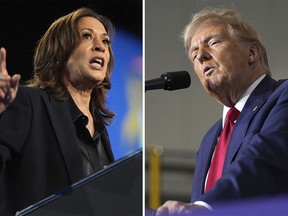JD Vance attacks Europe over migration, free speech
U.S. vice president stunned the audience with his broadside on the way Europe is run.

February 14, 2025 3:24 pm CET
By Paul McLeary, Jan Cienski, Suzanne Lynch and Robbie Gramer
Live coverage from Munich: POLITICO is on the ground at the Munich Security Conference, where we’re having conversations with top officials, lawmakers and experts at our POLITICO Pub. Follow our exclusive coverage here.
MUNICH — United States Vice President JD Vance launched a blistering attack on European governments on Friday, chastising them for ignoring the will of their people, overturning elections, ignoring religious freedoms and not acting to halt illegal migration.
It was a U.S.-style MAGA, red meat speech that eschewed detailed discussion of defense and security — the topic of the Munich Security Conference. Vance instead hit on some recent hot button cultural issues, from abortion laws in Britain to the recent election in Romania.
“The threat that I worry the most about vis-à-vis Europe is not Russia. It’s not China, it’s not any other external actor. And what I worry about is the threat from within,” the vice president said. “The retreat of Europe from some of its most fundamental values, values shared with the United States of America.”
It was clear that this is a very different administration from the transatlantic White House of former President Joe Biden.
“In Washington there is a new sheriff in town, and under Donald Trump’s leadership, we may disagree with your views, but we will fight to defend your right to offer it in the public square agree or disagree,” Vance said, adding: “Dismissing people, dismissing their concerns … shutting down media, shutting down elections … protects nothing. It is the most surefire way to destroy democracy … If you’re running in fear of your own voters, there is nothing America can do for you.”
Vance’s comments brought the audience of policy wonks and defense experts to a standstill.
Culture wars
His speech focused largely on culture war issues and populism, with Vance accusing European governments and what he called European Union “commissars” of being more interested in stifling free speech than in providing security for their citizens.
In one case, he slammed the U.K., highlighting the case of anti-abortion activist Adam Smith-Connor, who was convicted last year of breaching a safe zone for praying near an abortion clinic.
He also lambasted Romania’s top court for its November decision to overturn the first round of that country’s presidential election after far-right presidential candidate Călin Georgescu was accused of benefiting from an illegal Russian-style social media campaign.
“When we see European courts canceling elections and senior officials threatening to cancel others, we ought to ask whether we’re holding ourselves to an appropriately high standard,” Vance said.
He attacked high levels of migration, touching on the same themes that animated Trump’s return to power in the United States. He said he was praying for the victims of Thursday’s attack in Munich, when a migrant drove a car into a crowd, injuring 28.
“How many times must we suffer these appalling setbacks before we change course and take our civilization in a different direction?” Vance said, adding that the number of immigrants from non-EU countries who entered the bloc doubled from 2021 to 2022.
This was “the result of a series of conscious decisions made by politicians all over the continent,” Vance said.
Taking an absolutist view of free speech, Vance said: “I believe deeply that there is no security if you are afraid of the voices, the opinions and the conscience that guide your very own people.”
Stunned reaction
The speech caused consternation in Munich, where the audience had been expecting some clarity on the U.S. administration’s recent confusing comments on reaching a peace deal in Ukraine, its views on Russia, and whether U.S. troops will be pulled out of Europe.
“Nuts,” was the reaction of former U.S. ambassador to NATO Ivo Daalder. It’s “not the kind of language you would expect in the 21st century and certainly not from the U.S. vice president at Europe’s most important security conference,” he told POLITICO.
Daalder said Vance also missed an opportunity to explain the Trump team’s positions on Ukraine talks with Russia. “All he said is we believe there should be a peace at some point and that’s it. The question of territories and borders, the question of security guarantees, the question of sanctions and their future, the question of support for Ukraine and its future was not mentioned at all.”
But not all found the speech so objectionable.
Elon Musk, Trump’s billionaire adviser, was ecstatic, posting on X: “Make Europe Great Again! MEGA, MEGA, MEGA.”
One European diplomat applauded Vance, calling it “a very strong speech. Many will not like it. Many will silently agree with him but will choose not to express it. There has been double standards when it comes to how the EU institutions have approached the democratic process in different European countries.” …
Vance’s speech comes at the tail of a week of confusion and frustration in Europe, after Defense Secretary Pete Hegseth surprised allies by saying that Ukraine cannot return to its pre-invasion borders and ruled out Ukraine’s future membership in NATO.

